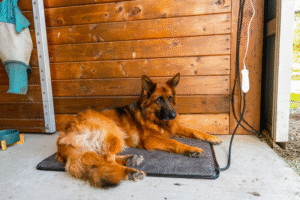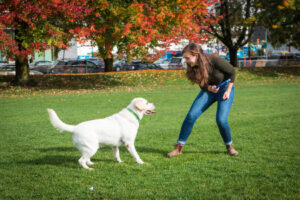Questions to Ask Yourself Before Adopting a Puppy
Bringing a puppy into your life is one of the most exciting decisions you can make. But the level of commitment required to properly raise and care for a young dog is not to be taken lightly. As you consider adopting a furry little bundle of joy, asking yourself some tough questions upfront is crucial. By honestly assessing whether you’re truly prepared for this new family member, you can avoid situations down the road that would be detrimental for both you and the pup.
Do I Understand What Owning a Puppy Entails?
Let’s start with the basics. Raising a puppy is very different than living with an adult dog. Their needs are greater, they require constant supervision, and you’ll be shaping a majority of their long-term behaviors during the first year. Make sure you fully grasp concepts like:
- Housebreaking – Puppies need to go out very frequently and can have accidents even when closely watched. You’ll be on poop patrol for months!
- Biting/nipping – All puppies explore and play using their mouths, especially sharp baby teeth. Training not to bite takes time and patience.
- Socialization – Early positive exposures during the prime socialization window are vital for minimizing fear and anxiety later on.
- Training – From potty skills to manners to basic cues, teaching important behaviors starts immediately and is an ongoing process.
- Exercise needs – Puppies should only exercise moderately to avoid joint damage, but do require regular play and enrichment.
- Confinement – Puppies get into mischief fast, so blocking off rooms, using crates/pens, and leashes are a must.
If any part of actual puppy ownership seems undesirable or challenging, be honest with yourself before making a 15 year commitment!

Is My Lifestyle Compatible With a Puppy’s Needs?
Your daily routine and home environment will require major adjustments to properly accommodate a growing pup. Evaluate your situation to see if you can provide what a puppy needs to thrive:
- Enough time – Can you commit to regular feeding, potty breaks, training/play sessions, vet visits, and meeting other needs on a puppy’s schedule? Who will care for them while you’re working or out?
- Adequate attention & stimulation – Puppies need tons of interaction, supervision and enrichment to develop properly. Can you actively engage with them throughout each day?
- Sufficient living space – Puppies should be limited until fully housebroken/trustworthy. Is there enough room to give them their own, gated-off safe space for naps/quiet time?
- Access to outdoors – Can you easily take a puppy outside every 30-60 minutes as needed for bathroom breaks until they’re housetrained? Consider weather factors as well.
- Financial readiness – Medical bills, supplies, food, toys/enrichment, training costs and more really add up for a puppy! Is this expense feasible?
If accommodating a puppy’s extensive care needs will significantly disrupt your ability to work, attend school, travel or partake in important self-care, you may wish to wait until your situation changes to become a pup parent.
Am I Prepared to Handle the Challenges Puppies Present?
There’s no sugarcoating it – puppies, especially in their first six months of life, can be extremely difficult. Before adopting, analyze your own mental/emotional state to see if you’re equipped for the rollercoaster ride:
- Patience – Accidents, crying, biting, destructiveness are all common puppy behaviors that will severely test your patience. Honestly assess your anger triggers.
- Diligence – Consistency and repetition are vital for training puppies. Will you commit to positively reinforcing wanted behaviors every single time without fail?
- Adaptability – Puppies are constantly changing, often for no apparent reason! Can you handle curveballs and surprises with resilience?
- Self-control – Recognize situations early where you need to walk away and cool down, rather than reacting hastily out of frustration. Plan coping methods in advance.
- Energy level – From playtime to middle-of-the night potty runs, puppies demand high energy output from owners. Evaluate your capacity to match a puppy’s vivacity.
- Support system – Who can you turn to for advice or temporary puppy care when feeling overwhelmed? Identify your resources.
Don’t feel guilty if you don’t think you can endure the chaos of puppyhood right now! Wait until your life allows you to revel in the rewards instead of just barely surviving the difficulties.
By taking a close look at your own preparedness before adopting a puppy, you ensure the best possible start to your relationship. Raising a well-adjusted, happy dog depends first and foremost on meeting their needs. Analyzing your ability to provide everything an adorable fur baby requires will give you the clarity to make the soundest choice. While no one is 100% prepared for everything a puppy entails, doing your due diligence by asking the tough questions will set you both up for success!



